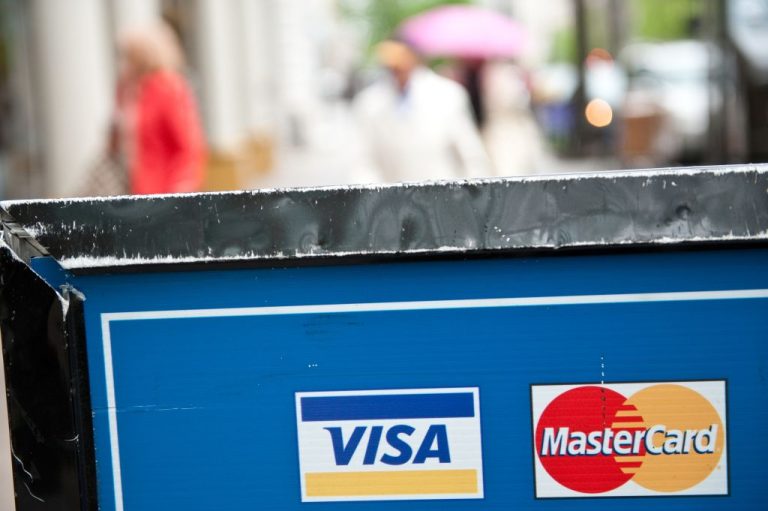Attorneys General from 24 Republican states have warned credit card giants Visa, Mastercard, and American Express against a recently announced intention to install a new transaction code that will track transactions at firearms retailers.
“Categorizing the constitutionally protected right to purchase firearms unfairly singles out law-abiding merchants and consumers alike,” reads a draft of the letter, which The Wall Street Journal states it had the privilege of viewing in a Sept. 20 article.
The Journal, who added that although they had viewed merely a draft, the final letter was sent the same day, further stated that the endeavor was captained by the AGs for Montana and Tennessee.
MORE ON MIDTERMS AND GUN CONTROL
- Billionaires Pile Donations on Alaskan Senator as Trump-backed Challenger Threatens Midterm Victory
- ‘Red Flags’ and Background Checks: A Look at America’s Far-reaching New Gun Control Law
- RCMP Commish Berated Subordinates Who Refused to Push Trudeau Gun Control Narrative After Nova Scotia Massacre
In a Sept. 11 article on the addition of the tracking code, WSJ explained for the uninitiated, “Merchant-category codes, or MCCs, are four-digit numbers that networks use to identify types of merchants by the goods and services they sell.”
“Card networks assign specific codes to many kinds of specialty merchants, such as fast-food restaurants, bars and bicycle shops.”
Success
You are now signed up for our newsletter
Success
Check your email to complete sign up
The outlet added, “Until now, gun shops were often categorized as specialty retailers or durable-goods sellers—categories that include a much broader collection of companies…The new code is for retailers whose primary business is firearms sales; big-box retailers that sell guns have different MCCs.”
However, the AGs, as well as many others, are concerned that the tracking code is a de facto form of non-legislative gun control surveillance.
The letter pointedly told the trio of processors that the AG’s offices were prepared to “marshal the full scope of our lawful authority to protect our citizens and consumers from unlawful attempts to undermine their constitutional rights.”
Facing backlash from the decision, a Sept. 13 public relations post on the Visa website attempted to clarify the issue, explaining, “As background, last week the International Organization for Standardization (ISO), a global standards-setting organization, decided to establish a new merchant category code (MCC) for ‘gun and ammunition stores.’”
Visa continued, “Many misunderstand what that means and are, in turn, advocating the use of MCCs to ‘track’ gun sales as a potential tool in combatting gun violence.”
“That’s not what merchant codes are designed for, nor should they be,” the company added.
The processor was quick to point out that MCCs “do not give Visa or any other payment network visibility into product-level data, also known as ‘SKU-level’ data.”
Adding, “When we process a transaction, we have no visibility into what items a consumer is purchasing — this is true irrespective of which MCC applies to a merchant.”
However, despite Visa’s prostrations, the addition of the gun and ammunition store MCC was certainly on the heels of suspect timing.
Less than two weeks prior on Sept. 2, WSJ reported that the AGs of California and New York State, both Democrats, had written to the trio demanding the firms begin what the outlet summarized as a campaign of “tracking gun sales and flagging suspicious purchases to law enforcement, similar to how financial institutions look out for money laundering.”
In Mastercard’s case, when Democrats said “jump,” the company was all too happy to ask “how high?”
A Mastercard spokesperson was paraphrased by WSJ as stating their company was already “reviewing how the proposal could be implemented and managed by the banks that connect merchants to its network.”
The man was further directly quoted as saying the California-New York suggestion would “help us continue to deliver a payments system that supports all legal purchases while protecting the privacy and decisions of individual cardholders.”
Visa and American Express, to the contrary, simply did not respond to the Journal’s request for comment.
According to reporting on the topic by Daily Wire, the matter has, unsurprisingly, become a political line in the sand as November’s Midterm Elections loom on the horizon.
Daily Wire stated that in addition to the 24 Republican AGs, 100 GOP House Members and their Party’s leaders likewise wrote to the processors demanding answers.
On the Democrat side, faces such as Sen. Elizabeth Warren (MA) and Rep. Madeleine Dean (PA) had tweeted on Sept. 6 that credit card processors “can and should do more to help stop mass shootings” while “urging these companies to step up and help identify suspicious purchases to prevent gun violence.”
All political theater aside, on a policy level, the Midterms are certainly high stakes.
On Sept. 11, Vice President Kamala Harris, who also represents the tie-breaking vote in the Senate as President of the Senate, stated bluntly during an interview with NBC’s Meet the Press that if Democrats could secure two more Senate seats in November, they would temporarily do away with the Filibuster Rule in order to push through legislation that codified Roe v. Wade-style abortion regulations and legislation that serves as a continuation of the Coronavirus Disease 2019 (COVID-19) modifications to the electoral system, which many believe allowed Joe Biden to win the Presidency.















